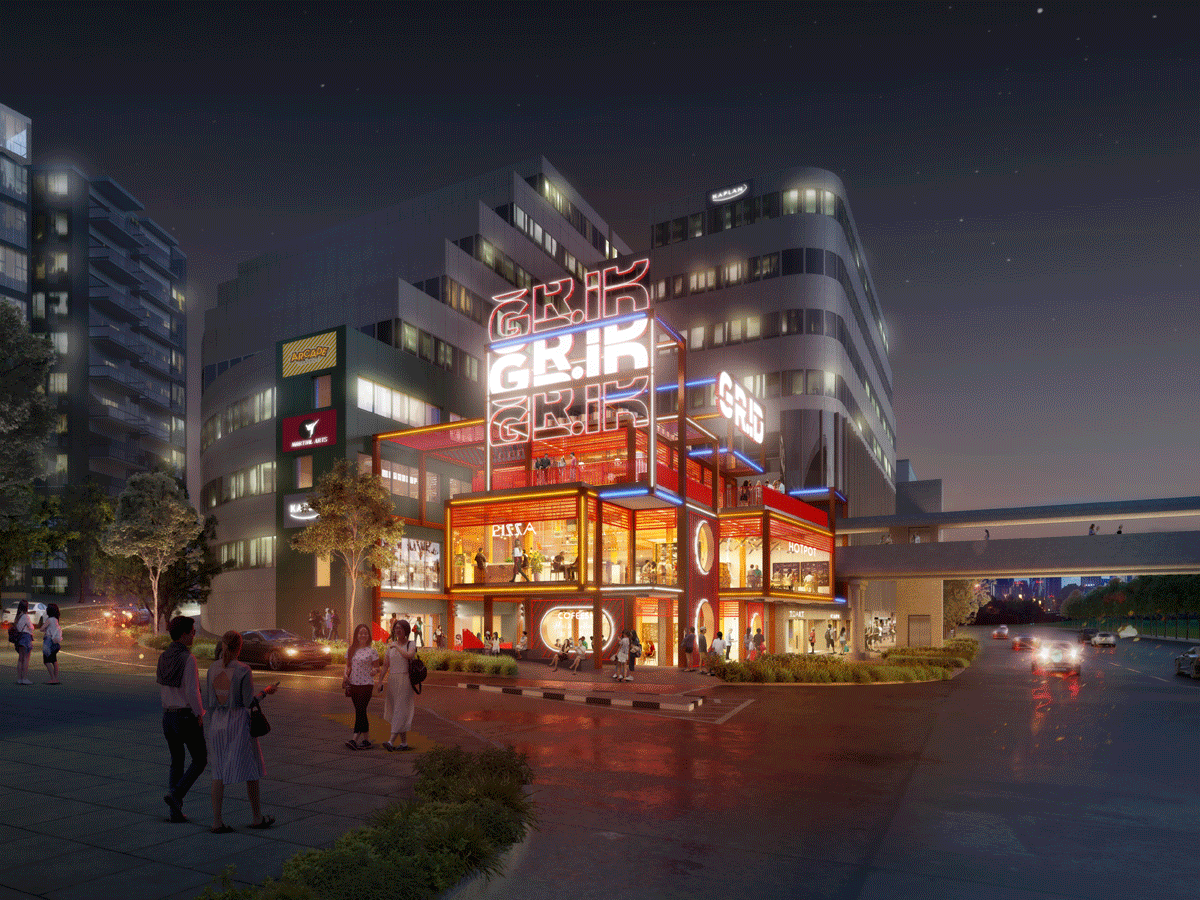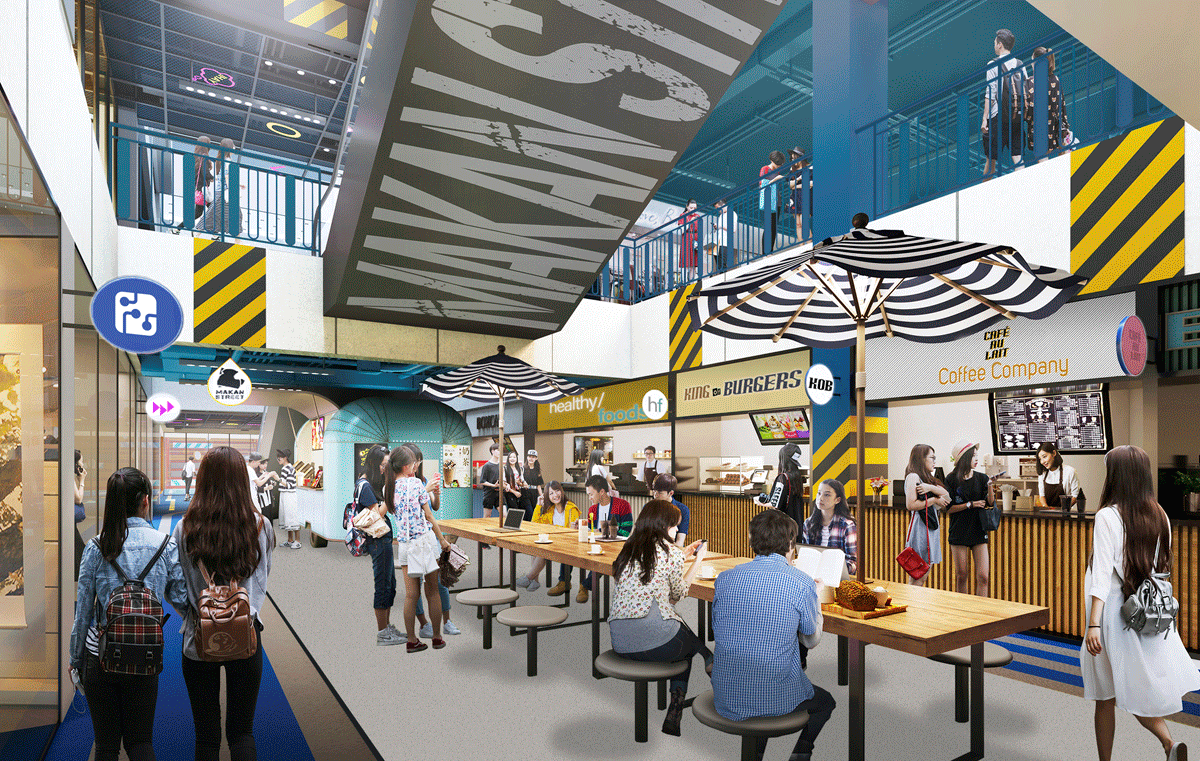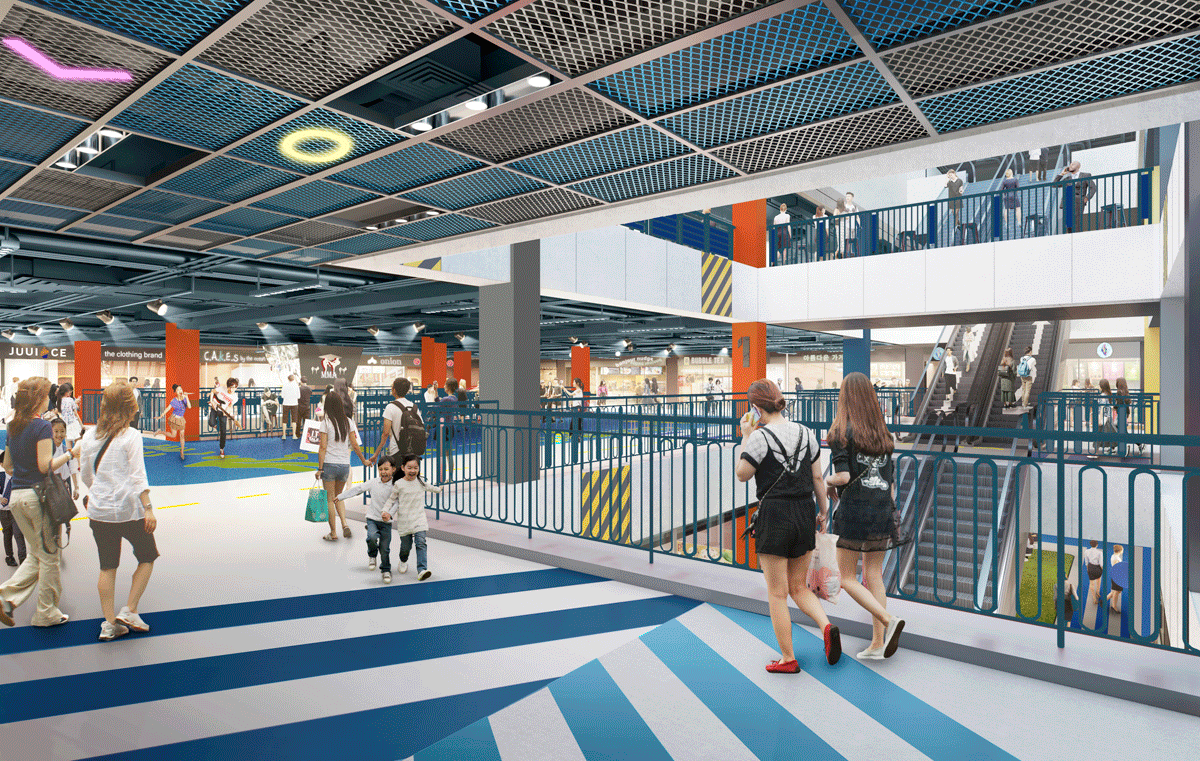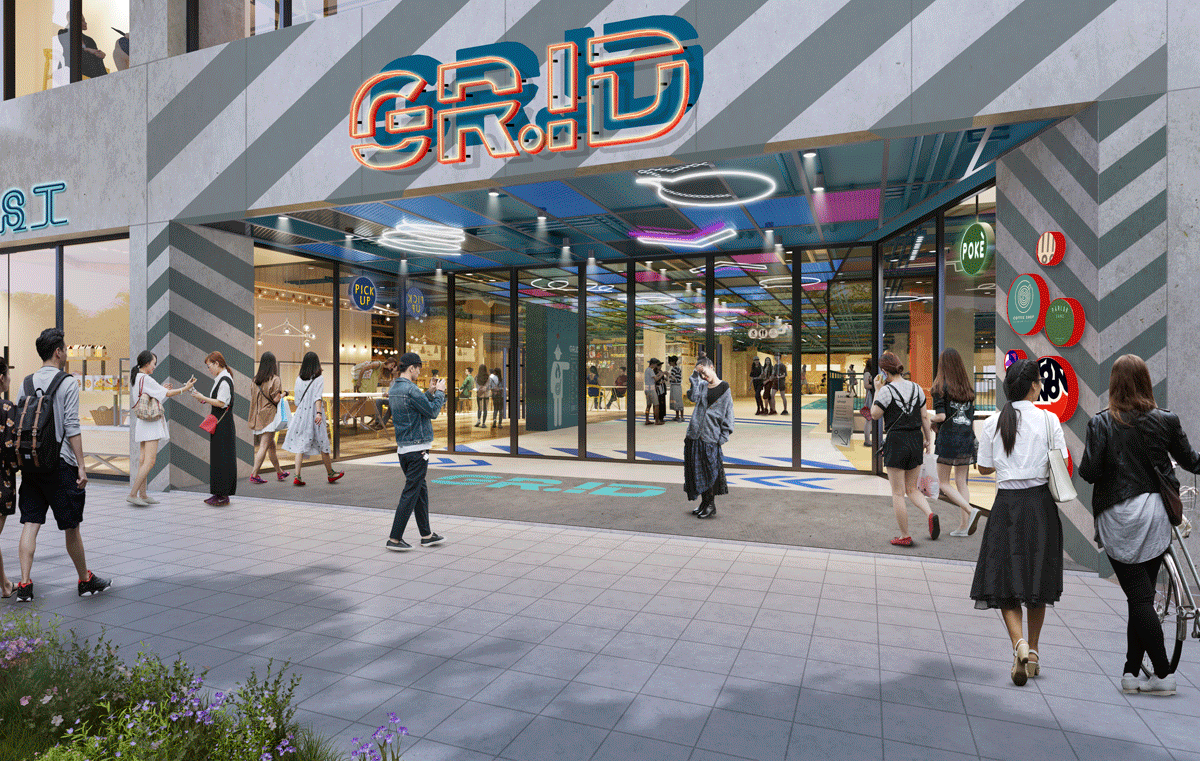BUILDING SPARK’S GR.ID DURING A PANDEMIC SPARK 2020 10/12
Retail has been adjusting to life in the digital age. The current COVID pandemic has served to hasten this process of adjustment as it touches almost every aspect of everyday life.
SPARK’s transformation of an old-style shopping mall into GR.iD, a regenerated place to “be”, an extension of an existing learning campus, a workplace, a place to socialise, shop, eat and connect with the local arts community.
SPARK’s GR.iD: Location map
The 33-year-old mixed-use building is located on Singapore’s Selegie Road and is part of the Bras Basah Bugis Precinct, an Arts and Cultural district in the heart of Singapore’s Civic Centre. The precinct is home to cultural and religious buildings; several art schools and international learning institutes, office buildings, hotels, and retail. Selegie is home to a “city fringe” community of local and international, students, residents, artists and working professionals.
SPARK’s GR.iD: selegie road junction view
The principal design gesture is the transformation of the building’s corner, it’s key address and threshold to the street. The new corner condition in effect becomes the building “beacon” and attractor. The corner is effectively reinvented from a humdrum experience into a vibrant digital generation friendly “instagrammer” canvas for content creators, and experience seekers.
The use of industrial material and textures, in the spirit of “grunge” freestyle expression, with arcade neon colours & lighting. GR.iD is designed to stand out against its neutral looking neighbourhood, a spark of urban curiosity.
SPARK’s GR.iD: Street view collage
“[the] Coronavirus could be the catalyst that we need to clean up our act across the board.”– Chris Smith for Monocle Magazine, on Retrofitting for “the new normal”
GR.iD being constructed through the COVID pandemic, has contributed to the learning experience and research work of SPARK. The conceptualisation of GR.iD was pre-COVID, although design revisions were introduced relevant to changing expectations of commercial and social spaces.
01. FOOD IS STILL A GREAT CONNECTOR
Food brings people together; and a key reason why people socialise, even during the pandemic. Many F&B businesses have folded globally, due to the impact of lock downs and the 2-month Singaporean circuit breaker. When the restaurants reopened, they were inundated with family & friends enjoying once again food from the kitchens.
One of the key upgrades introduced to GR.iD was the exponential increase to the quantum of F&B.
SPARK’s GR.iD: Transformation strategy
Formerly hidden “food joints” are now situated at the transformed corner of the GR.iD, looking over the busy cross junction, increasing visibility to and from the building. Al-fresco dining areas, more relevant by social distancing conventions, have been introduced at multiple levels: at the social stairs leading to the basement entrance, the ground level and the open deck on level 3.
SPARK’s GR.iD: Road level perspective view [*NLA = Net Leasable Area, F&B]
SPARK’s GR.iD: Outdoor dining area at Level 1 next to the social stair
02. FLEXIBLE TERMED RENTAL UNITS & SPATIAL USE
Supporting the F&B offer, are flexible “start-up” pop up stores and rental incubators, requiring Covid-friendly credible served offices and shop units relevant during and post pandemic.
“We had more than 1000 companies from different stages [of start-up business] respond to us and discovered that less than 10 percent of companies actually plan to go fully remote… I think young start-ups competing for talent, competing for customers, need the credibility of an office” – Roxanne Varza, Director, Station F
SPARK’s GR.iD: Basement *Makan Street [*Eat in Malay]
The smaller basement units of GR.iD’s “*Makan Street” [*Eat in Malay] and the large ground floor flexi-use space, called the “Hotspot’, provide spaces for the budding hawker, entrepreneur, chef, or the new app developer start up; with great visibility and footfall.
SPARK’s GR.iD: Level 1 “Hotspot” events/pop up store space
03. INTEGRATION OF MULTI-USE OUTDOOR SPACES
The new ‘social stair’ at GR.iD sits adjacent to the neighbouring School of the Arts, and is a key part of the dynamic new corner architecture. The stair is a place to relax with friends on custom benches watching shows on a large LED screen in a naturally ventilated triple volume space. This exciting open-air breakout space is set to become an important part of the arts district urban grain.
SPARK’s GR.iD: Taking a break at the Social stair
SPARK’s GR.iD: Outdoor cinema at the social stair
04. WELLNESS-CENTRIC CONSIDERATIONS
The pandemic has compelled designers to use materials that are self-cleaning and easy to sanitize, especially for surfaces that are frequently touched. Clean door handles, auto opening doors, auto faucets, smart building systems, that do not require touch activation and even anti-microbial coatings, have become ever more important.
Openable windows in place of fixed glass facades; naturally ventilated circulation spaces with open air courtyards, instead of enclosed atriums, are great post pandemic upgrade considerations, for older buildings undergoing regeneration work.
SPARK’s GR.iD: Selegie road main entrance
Although the construction safety measures put in place by the Singapore government has slowed the construction process, with a smaller, socially distanced workforce on site; we look forward to the day when we can invite the community to GR.iD’s: start-ups & pop up stores at the “Hot spot”, the “Makan” food street, the L3 open viewing deck and the fun focused social stair.












